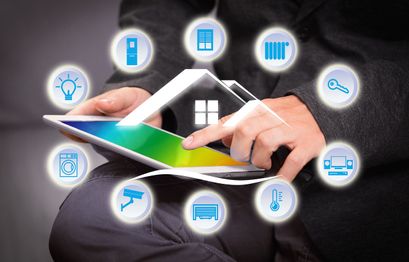- Technology advancement has led to the emergence of automated smart home systems designed to make life easier.
- Smart home technologies automate everyday tasks and provide convenience.
- The revenue for smart home technology is projected to surpass $27.74 billion by 2025.
Smart home technology is revolutionizing the way people live, providing more control over the home environment than ever before. According to BanklessTimes.com, the global market for smart home technology is expected to reach a value of $27.74 billion by 2025, a figure that is almost double the estimated market size of $13.13 billion in 2020.
According to BanklessTImes CEO Jonathan Merry:
The increasing prevalence of smartphones and other connected devices and the rising consumer awareness of the many benefits of home automation systems and services, are two major trends driving this growth. Additionally, technological advancements in artificial intelligence (AI) and machine learning (ML) are allowing smart home systems to become more complex and automated, further boosting the growth of this segment.BanklessTimes CEO, Jonathan Merry
Examples of Smart Home Technologies
Smart home technologies can be used for a wide range of applications, from basic lighting and temperature control to more advanced security systems and voice control features. Furthermore, smart homes also offer energy efficiency benefits as connected devices allow homeowners to monitor their energy usage and make changes to their settings accordingly.
Some examples of smart home technologies include Smart TVs, voice and gesture recognition systems, connected lighting systems, AI-enabled security surveillance systems, automated door locks, and thermostats. In addition to being able to be controlled remotely and customized, smart lighting systems can detect when occupants are in the room and adjust lighting as needed.
Smart thermostats like Nest from Nest Labs Inc. allow users to schedule, monitor, and remotely control home temperatures. These devices also learn homeowners' behaviors and automatically modify settings to provide residents with maximum comfort and efficiency. Smart locks can also detect when residents are near and unlock the doors for them, granting or denying access to visitors. Smart security cameras can detect motion and alert homeowners of any activity in the home.
For pet care, connected feeders allow food to be replenished to pets at scheduled intervals. Automated watering systems can also be installed to ensure houseplants and lawns are always hydrated. Kitchen appliances of all sorts are available that allow users to control cooking times, monitor food levels, and even order groceries automatically.
In the laundry room, washing machines and dryers can be programmed to start or stop at certain times. Household system monitors may sense an electric surge and turn off appliances or sense water failures or freezing pipes and turn off the water so the basement doesn't flood.
Benefits of Smart Home Technology
A smart home eliminates the need for manual control of home operations. Furthermore, it provides an enhanced level of convenience and can be customized to meet each homeowner's needs. With the help of AI technology, smart home systems are continually learning from their owners' behaviors and preferences in order to provide better efficiency and convenience.
Smart homes also offer energy savings as connected devices can provide insights into energy usage and allow homeowners to make the necessary adjustments to become more energy efficient. By automating the operation of home appliances, lights, and other devices, homeowners can save on their monthly electricity bills. Smart homes also offer enhanced safety and security with features like automated door locks, motion detection systems, smart lighting systems, and surveillance systems.
The global market for smart home technology is expected to witness tremendous growth over the next few years, driven by an increasing number of connected devices and rising consumer awareness about the many benefits of this form of automation. Smart homes offer a wide range of convenience, efficiency, and security benefits, which are only becoming more advanced as technology advances. Smart home technologies will continue to become integral to modern living in the coming years.
Contributors











